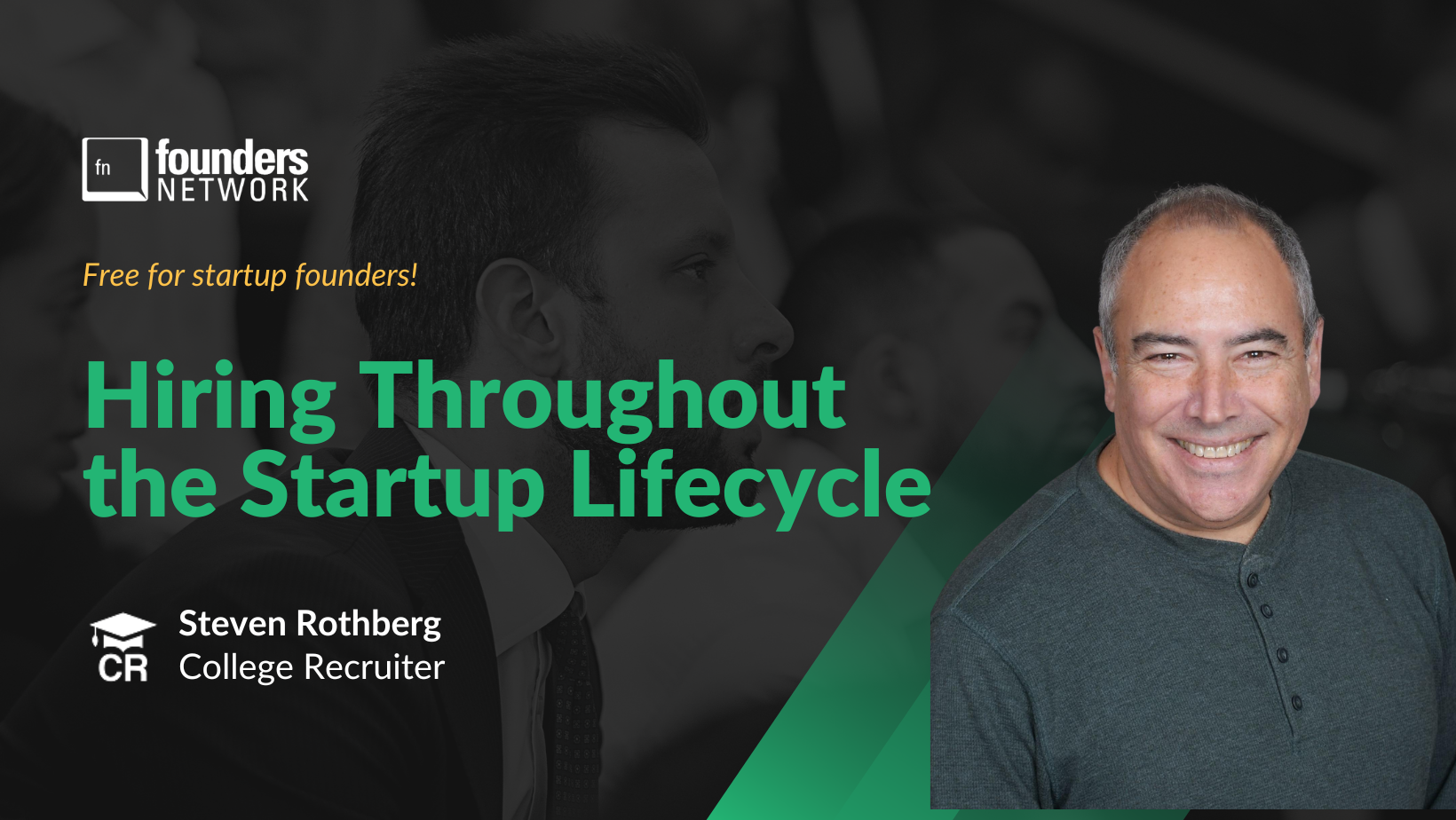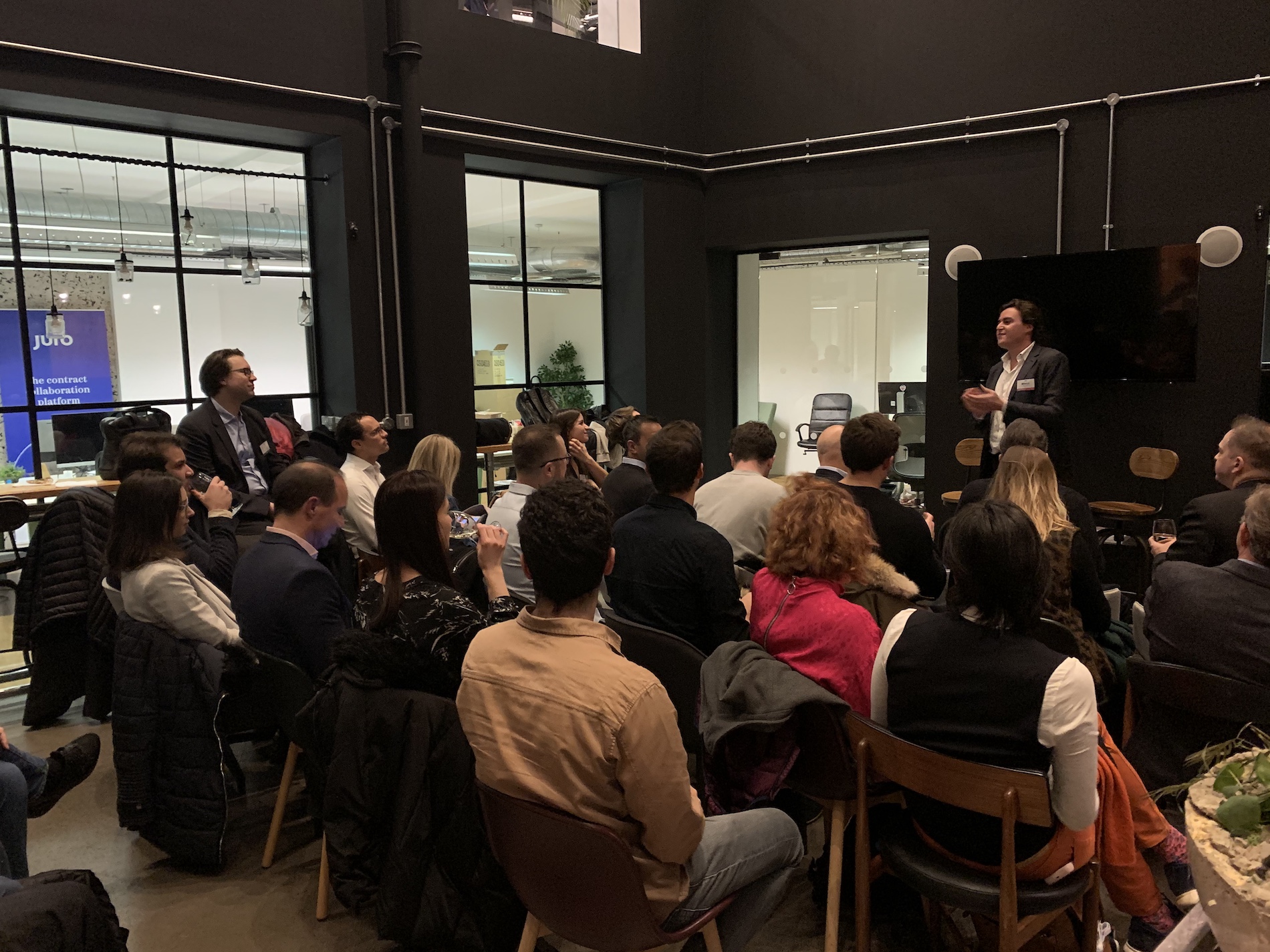
To learn about hiring throughout the startup lifecycle, click here to watch Steven Rothberg’s webinar.
Hiring can be a major challenge for founders as they progress through the startup lifecycle. Whether you have 5 employees or 50, employees are the backbone of your startup and can mean the difference between success and failure.
That’s likely why founders at startups cite hiring as their top concern over other issues like revenue growth and customer acquisition. In a survey, 74 percent of startup founders said they worry about hiring good people.
In a startup with a small workforce, each individual hire has the potential to greatly impact your trajectory. Knowing when to hire and fire is crucial and managing your team throughout the different stages of the startup lifecycle means establishing a strong company culture and intuitive workplace policies.
Over the last 30 years, College Recruiter Founder Steven Rothberg has had to navigate the HR challenges that come with growing your workforce from zero to twenty employees. He also helps enterprise companies rapidly scale their workforce and understands the vital role talent acquisition and management plays in growth.
“The biggest pain isn’t growing from 10 to 100 employees,” says Steven. “It is growing from zero to one. But there are ways to minimize that pain and allow you to focus on building your business.”
In a webinar for Founders Network on June 8, Steven shared tips on hiring throughout the startup lifecycle, derived from his decades working in talent acquisition and his own experience adding employees at his company.
Steven’s webinar also covered:
- How to write an ad that attracts well-qualified leads
- How and when to delegate hiring in the startup lifecycle
- How to create fair workplace policies
- How to transition from 1099 contractors to W2 employees
The First Step
Your first hire as a startup founder is key. The role often comes with a lot of pressure, not just for you as a founder, but also for the candidate you ultimately choose. That’s why it’s important to ensure you attract candidates equipped to handle the unique challenges that come with working for a startup.
“If you’re a startup founder about to hire your first employee, that’s a big hurdle to go from zero to one,” Steven says. “And part of that hurdle is understanding how to write an effective job ad so you get well-qualified leads, not just a lot of leads. You really need to objectively lay out the criteria that you’re looking for when hiring people.”
The Next Hurdle
Once your startup grows, it’s important to have established workplace policies in place for your employees. For example, what if one of your employees wants to work remotely while the rest work in the office? According to a report, while 63% of companies today have remote workers, the majority lack remote work policies. Having established policies ensures an inclusive work environment.
“Growing from 20 to 30 employees typically involves your first dose of significant HR help. When you get to be about 20 employees, now you need things like training and workplace policies,” Steven says. “I think a lot of founders get really messed up with that. And they start creating discriminatory workplace policies that are not necessarily illegal, but treating employees differently because they don’t have any formally established rules in place.”
Taking a Step Back
Steven says once founders get to a certain stage in the startup lifecycle, they need to know when to delegate. According to a study, this ability is a fundamental managerial trait of successful entrepreneurs. However despite its benefits, delegating can be especially hard for startup founders.
“The last ten people that we’ve hired over the last year, literally I’ve interviewed none of them. I’ve not been involved at all in interviewing them,” Steven says. “What we really came to realize was that I wasn’t adding any value. All I was doing was slowing down the process. I don’t have an ego, so I’d much rather hire the right person than somebody who I think is the right person.”
To learn about hiring throughout the startup lifecycle, click here to watch Steven Rothberg’s webinar.






